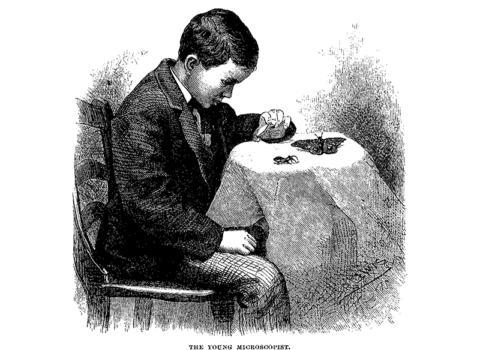Censorship
“Nor would I leave to Emmanuel Macron and Mark Zuckerberg, both of them politicians first and foremost, the job of regulating anything that has to do with words or language.”
During a recent tranquil vacation in France, well beyond the reach of digital tyranny, I was disturbed by some articles in the national press concerning a proposed law intended to subject Internet communication to de-facto censorship by the state. A lifelong defender of civil liberties, I’m not alone in feeling dismay at the prospect of official regulation of the “hatred” expressed on social networks, and I hope that in France the Senate will curb the recklessness of the National Assembly, an overwhelming majority of whose members voted in favor of the proposition.
To begin with, the censoring of disagreeable or even repellent opinions is not consistent with the purported values of the land of Voltaire or with France’s cherished principle of freedom of expression. Moreover, the idea that a government bureaucrat could or should decide the legitimacy of this or that insult hurled by some lunatic from a virtual platform seems to me to be both dangerous for democracy and unquestionably impractical. The World Wide Web we know today is comparable to yesterday’s public square—people “talk” to one another online as if to a neighbor who lives across the street. No one but hard-core Stalinists would want the police to be listening in on every random conversation, constantly on the lookout for some nasty remark or falsehood that could provoke—according to Laetitia Avia, a member of the National Assembly—violence against innocent people.
Furthermore, France runs the risk of putting itself in a totally hypocritical position after the murder of twelve people at the offices of Charlie Hebdo. How can you excoriate online “hate” and at the same time unreservedly defend the “right” to mock the prophet Muhammad in print? Obviously, for some devout Muslims, a caricature of the prophet is an expression of hatred, or worse. Laetitia Avia and her allies, however, see no contradiction in prosecuting “websites dedicated to the propagation of a hateful ideology, whether it be racist, antisemitic, anti-Muslim, homophobic, or sexist.”
“Hate is a feeling, not a legal concept,” an editorial in Le Figaro declared. Exactly. And the best way to combat poisonous and malevolent feelings is to espouse contrary feelings, based on both reason and tolerance. Nor would I leave to Emmanuel Macron and Mark Zuckerberg, both of them politicians first and foremost, the job of regulating anything that has to do with words or language. The thought of such a “collaboration” between government and financial power—announced after their May 10 meeting in the Élysée Palace—sends a genuine shiver down the spine.
Then again, I’m sensitive to the necessity of sheltering real innocents from the threats posed by a world increasingly hostile to innocence. Far from Paris and the great political debates, I came across an article in the regional French newspaper Var-Matin that reported the protest of five teenage girls against a group of “lovers of naturism.” Made uncomfortable in their favorite refuge—the Jean Blanc beach at Le Lavandou—by the sudden arrival of some twenty nudists, the girls, all of them Parisiennes, drew up and displayed cardboard signs demanding the withdrawal of the invaders: “Put those butts away!” “Think of the children!” “Go back for swimsuits!” One of the protesters, Louise, put her finger on the central issue regarding appropriate censorship: “I don’t have anything against naturism itself, it’s a choice I respect, but it’s a choice! And a choice that must not be imposed on others.”
It’s easy to make fun of the prudishness exhibited by Louise and her friends, as a “medical psychotherapist” quoted in the Var-Matin article did: “We have to take their gesture humorously, like a wink.” Except that the avalanche of violent and pornographic images in public spaces is no joke, and the conflict identified by Louise remains pertinent. Do minors really have “the choice” of avoiding the provocative and offensive images that inundate culture daily—on the Web, on television, on billboards? Don’t we have an obligation to protect the young and innocent from the psychologically harmful images that assault them incessantly? Is an image equivalent to a word or an idea—and does it deserve the same privileged status? On the one hand, I think it’s parents who, in the end, must assume the responsibility of protecting their children. I recall how fast I would turn off the practically pornographic Guess commercials that ran on Taxi TV in New York when they appeared before the eyes of my little daughters (sometimes I literally had to punch the screen). On the other hand, you can’t be everywhere; when my girls got older, I knew I wasn’t capable of covering up the hypersexualized images they were bound to encounter at bus stops as well as in the windows of Victoria’s Secret.
Of course, I’m not advocating the institution of censorship for works of public art that represent sexuality or violence, such as the foolish decision of the San Francisco school board to destroy a mural in a public high school because its depiction of a dead Native American and some slaves might shock students. Nevertheless, this fraught subject deserves the attention of French elected officials, among others, who would do better to concern themselves with protecting vulnerable children than with protecting idiotic adults who have nothing else to do but spend their time reading the dunderheaded asseverations of other idiots in the great digital void.



